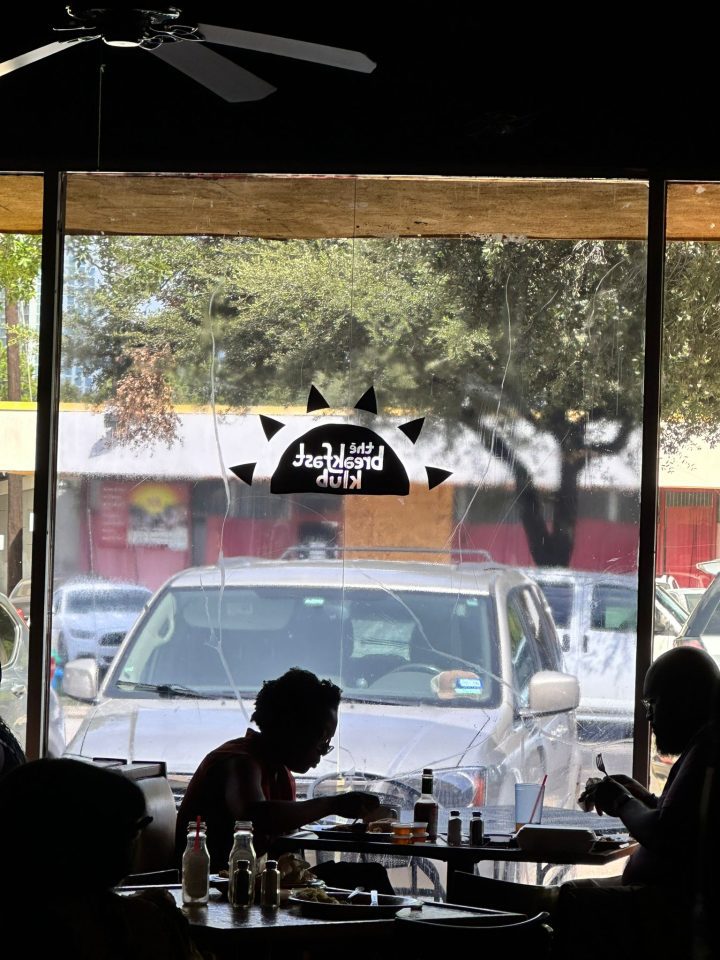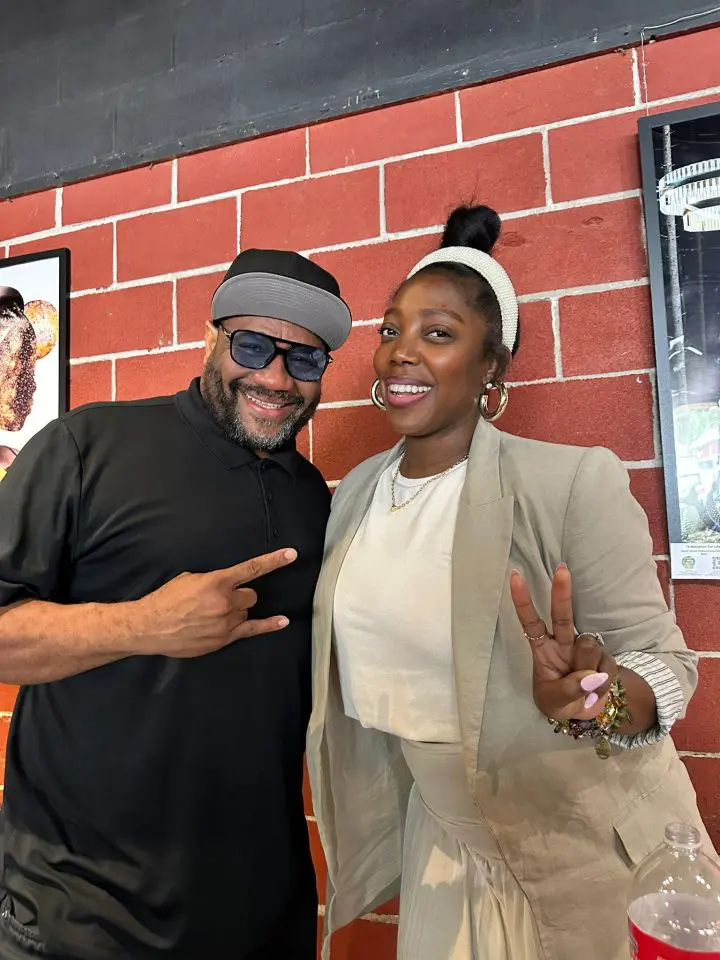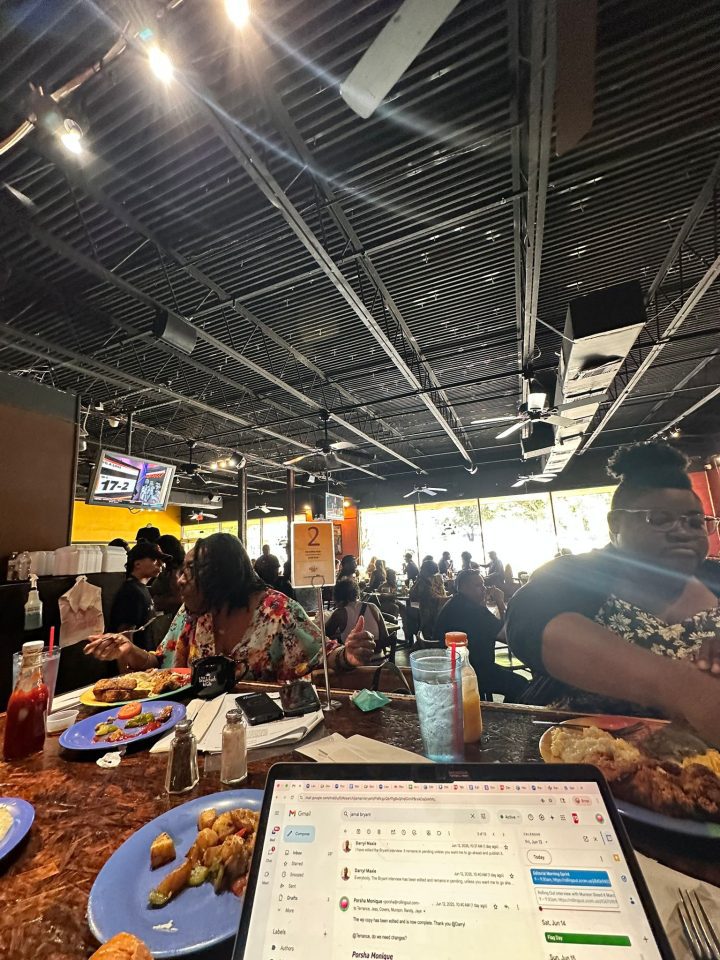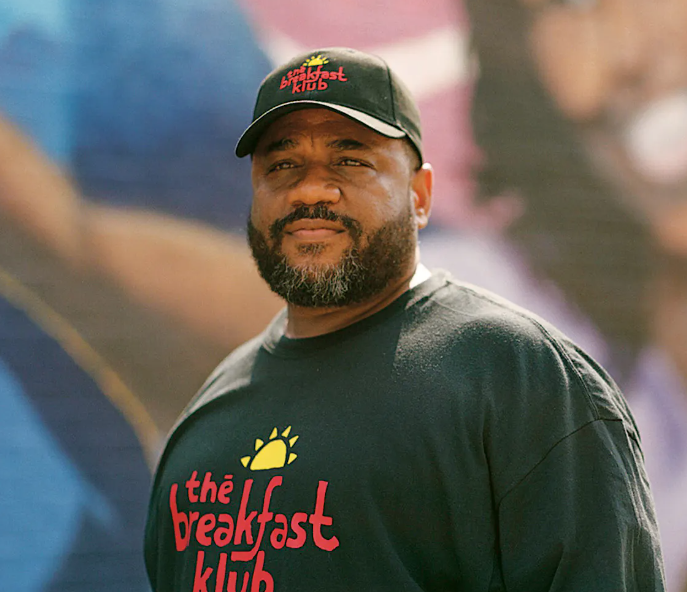Marcus Davis doesn’t just run restaurants — he builds community spaces. Since opening The Breakfast Klub in 2001, the Houston native has created what Good Morning America called the best breakfast in the country. But his four-establishment empire represents something deeper: it’s about listening to what communities need and having the courage to provide it.
Each of Davis’s ventures emerged from a specific void. The Breakfast Klub combined East Coast “Katfish & Grits” with West Coast “Wings & Waffles” in a soulful environment Houston lacked. When the beloved Reggae Hut faced closure, he saved it. After being denied entry to a Midtown bar for “dress code” violations while watching others in flip-flops walk in, he opened Alley Cat Bar. His latest, culture bar, addresses Black chef representation downtown.
Davis has transformed from restaurant owner to cultural institution builder, creating spaces where people don’t say “this is Marcus’s spot” — they say “this is our spot.”
How many establishments do you have and what’s the story behind each one?
We opened this in 2001. But then in 05/06 we acquired a long standing Caribbean restaurant, Community State, with the Reagan Hut. And then about five years after that we launched, oh, Reagan Hut was the name of the restaurant. And then after that we opened a bar called the Alley Cat Bar in Miles. Which is right behind the school main street. And then a few years after that we opened a culture bar in town. And all of the stuff that we launched came out of a need.
I’m an entrepreneur that happens to be in the hospitality business. And I believe entrepreneurship is about filling the void in the market. That the marketplace is calling for consciously our sudden change. And so each thing that we’ve done was about listening to what the market was asking for. And looking for what the market needs and deciding to put it in.
For example, the Caribbean restaurant. We opened in 96. We took over in 2006. And we didn’t acquire the regular because the people lamented the fact that it was closing.
We opened Alley Cat because bars in Midtown weren’t catering to African Americans. This is one of the reasons that we opened. There was a series of incidents where African Americans were being discriminated against in bars in the Midtown, downtown, and the Hykes area. So, myself and Poo, went to a bar. They told me I couldn’t come in, but then let somebody else, because I didn’t do the dress code.
And then the person right behind me was wearing flip flops and shorts. And they let me in. They had the right dress code. They had no melon. So, that was a need. The other need was the way the bars set up. It has three different spaces that provide three different things at one time. So, yeah, and then Culture, which is in downtown, was launched as a need that had to be filled dealing with black chefs and their opportunity to have representation in the industry.
How did you become a cultural staple in Houston?
The people chose it. We just did our part. The people responded. They overwhelmed us with love and support.
Tell me about your background and how entrepreneurship runs in your family
My dad was educated by a profession, but his two passions, which he could have done professionally and so good at them, his two passions were food and music. He was a hell of a cook and a hell of a pianist. But by day he educated at the kids. He was an administrator, counselor, colleague.
I didn’t know where I got entrepreneurship from until I looked back and saw where I had seen lenses of it, if you were a haughty. So the candy lady is the lady, somebody in the neighborhood that has like a convenience store in the neighborhood. They got the chips, they got the cookies, they got the food tubs, they got the candy. And you go to their house and you buy those things.
My grandmother was the food catered club lady or the candy lady. She had a little room in, off the garage where people come and buy little things. It’s Mary. We closed. Let me get some chips though. And, and what I, what I learned from my grandmother, I didn’t know I was learning at that time. We would go to the big store and buy the, the bulk packages and come back and break it down. See what I’m saying? Get the big jug of pickles, break it down, put them in the individual package. Get the big bag of chips and break it down.
What are three things customers will always get at your establishments?
What I would say is against the three of the principles that I built the business on, then I believe in quality, product, quality service, and consistency. Those are the three things that I encourage other entrepreneurs. It doesn’t matter if you’re a business or whatever, but if you work on delivering quality, product, quality service and doing those two things consistently, then that’s a recipe for success.
What are you currently reading?
Atomic habits. It’s been out for a couple of years and I was familiar with it. I just hadn’t read it and I was sitting with it. Ironically, my mentee gave it to me. I was like, you haven’t read it? I was like, no, I haven’t read it yet. I’m reading something else. That’s how I would always challenge him, hey, what you reading? And he had a copy of it. He was like, I’m going to tell you how mine is. So, I took it.
















